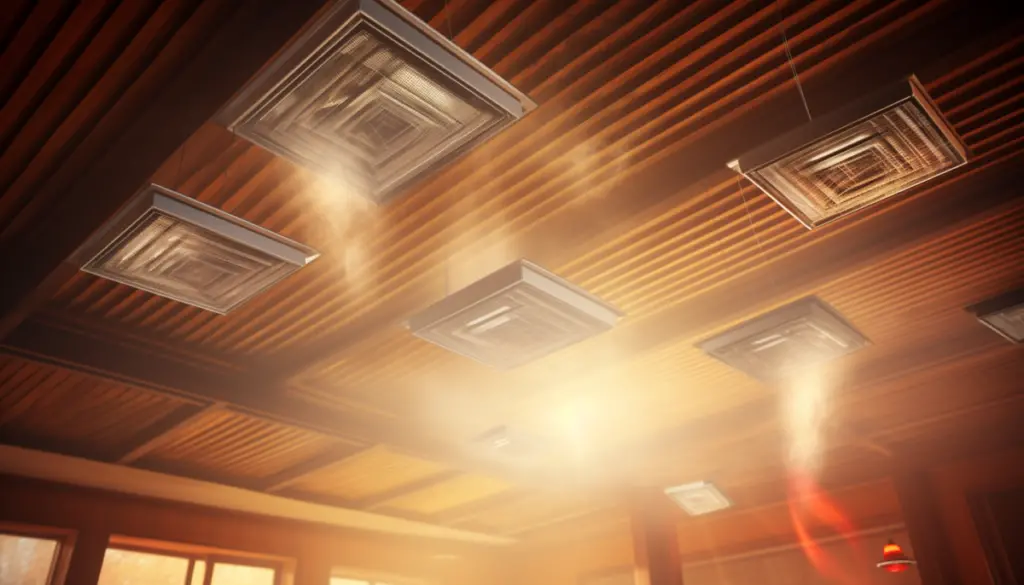Blog
AC Not Blowing Cold Air: Causes and Solutions

As HVAC technicians, we see firsthand how crucial a properly functioning air conditioner is, especially during the sweltering heat of summer. When your AC fails to blow cold air, it’s more than an inconvenience; it can disrupt your daily life and even pose health risks in extreme temperatures. In this article, we’ll examine why your AC might stop blowing cold air.
We’ll discuss the mechanics of how air conditioners work, identify common issues, and provide practical solutions. Whether you’re a homeowner looking to troubleshoot problems or just curious about your AC’s functionality, this guide will equip you with the knowledge you need to understand and address these cooling challenges.
Understanding How Your AC Works
At its core, an air conditioner operates on a simple principle: it removes heat from the air inside your home and transfers it outside, leaving cooler air circulated back into your living space. This process involves several key components:
- Compressor: The heart of your AC system, the compressor, plays a crucial role in the refrigeration cycle. It compresses the refrigerant, increasing its temperature and pressure, and propels it through the system.
- Condenser Coil: Located outside your home, the condenser coil releases the absorbed heat into the outdoor air. As the refrigerant passes through the coils, it cools down and transforms from a gas to a liquid.
- Expansion Valve: This component regulates refrigerant flow into the evaporator coil. It reduces the pressure of the refrigerant, allowing it to expand and cool further.
- Evaporator Coil: The evaporator coil inside the house absorbs heat from the indoor air. As the refrigerant evaporates, it extracts heat, cooling the air circulated back into your home.
- Refrigerant: The refrigerant is the lifeblood of your AC system. This chemical fluid transitions between liquid and gaseous states within the AC system, absorbing and releasing heat.
Understanding these components and their functions is crucial in diagnosing and fixing issues when your AC is not blowing cold air. Each part plays a specific role in the cooling process, and a malfunction in any one of them can impact the entire system’s efficiency. In the following sections, we’ll explore common problems with these components and how they affect your AC’s performance.
Common Reasons for AC Not Blowing Cold Air
In our experience, several issues can lead to your AC not blowing cold air. Understanding these common problems can help you identify and possibly rectify the issue before calling in a professional.
- Low or Leaking Refrigerant: The refrigerant is crucial for the cooling process. If your AC has low refrigerant levels, it can’t cool the air effectively. Signs of a refrigerant leak include hissing noises, ice buildup on the refrigerant line, and reduced cooling capacity. Leaks need professional attention as they involve handling hazardous materials and require precise repair techniques.
- Thermostat Issues: Sometimes, the problem is as simple as incorrect thermostat settings. Ensure it’s set to ‘cool’ and the temperature is lower than the room’s current temperature. Calibration issues can also cause the AC not to cycle on properly, requiring professional recalibration or replacement.
- Dirty or Clogged Filters: Airflow is key to efficient AC operation. Dirty or clogged filters restrict airflow, reducing efficiency and sometimes causing the evaporator coil to freeze, leading to warm air or no air output. Regularly cleaning or replacing your AC filters can prevent this issue.
- Blocked or Clogged Registers: Ensure all vents and registers are open and unobstructed. Furniture, curtains, or toys blocking these can restrict airflow, diminishing the AC’s cooling ability.
- Malfunctioning Compressor: The compressor is vital for refrigerant circulation. Symptoms of a failing compressor include strange noises, the AC struggling to start, or the unit vibrating more than usual. Compressor issues often require professional diagnosis and repair.
- Problems with Condenser or Evaporator Coil: Dirt and debris can clog these coils, reducing efficiency. Ice or frost buildup is a common sign of problems, often linked to airflow issues or low refrigerant levels.
- Leaking Ducts: Leaks or tears in the ductwork can significantly reduce your system’s efficiency. Signs include uneven cooling in your home, higher energy bills, and reduced airflow. Ductwork issues typically require professional repair.
DIY Troubleshooting Steps
The easiest way to solve the problem is to give us a call for an AC repair. However, there are a few simple checks and fixes you can perform:
- Check and Reset the Thermostat: Ensure it’s set to ‘cool’ and the appropriate temperature setting. Sometimes, simply resetting the thermostat can solve the problem.
- Clean or Replace Air Filters: This is one of the easiest and most effective DIY maintenance tasks. Check your filters monthly and clean or replace them as needed.
- Inspect and Clear Vents and Registers: Ensure all vents and registers are open and free from obstructions like furniture or drapes.
- Basic Checks for Compressor and Refrigerant Levels: While detailed checks should be left to professionals, you can listen for unusual noises from the compressor or check for ice buildup on the refrigerant lines. However, refrain from handling refrigerant or internal AC components unless you have the necessary expertise.
These steps can often resolve minor issues, but for more complex problems, professional assistance is recommended to ensure the safety and longevity of your AC unit.
When to Call a Professional
In our many years in the business, we’ve encountered numerous situations where a professional’s expertise is crucial. While DIY fixes can handle minor issues, certain problems require professional intervention.
If you notice refrigerant leaks, suspect a compressor malfunction, or face electrical issues, it’s time to call a technician. These problems demand specialized knowledge and tools and pose safety risks if not handled correctly. Additionally, a professional diagnosis is necessary if the AC still doesn’t blow cold air after your troubleshooting steps or exhibits unusual noises, smells, or erratic behavior. Attempting complex repairs yourself can lead to further damage, void warranties, and, in some cases, be dangerous. It’s always better to be cautious and consult a professional when in doubt.
Preventive Maintenance Tips
Regular maintenance is key to ensuring your AC runs efficiently and lasts longer. As a homeowner, there are several routine tasks you can perform:
- Regular Filter Changes: As mentioned earlier, clean or replace your AC filters every 30-90 days, depending on usage and environmental factors.
- Clearing Debris: Keep the area around your outdoor unit clear of leaves, dirt, and other debris. This prevents blockages and ensures adequate airflow.
- Inspecting Insulation on Refrigerant Lines: Check the insulation around refrigerant lines leading into the house for signs of wear and tear.
However, some maintenance tasks require professional skills. Annual or bi-annual check-ups by a certified HVAC technician are crucial. We can perform more complex tasks like checking refrigerant levels, inspecting electrical components, and cleaning coils. These check-ups are particularly important before peak seasons, like summer and winter, to ensure your system is ready to handle extreme temperatures. Regular professional maintenance keeps your system running smoothly and can catch potential problems early, saving you from costly repairs down the line. Remember, a well-maintained AC is more efficient, has a longer lifespan, and provides greater comfort and reliability.
Final Thoughts on ACs Not Blowing Cold Air
Understanding why your AC might not be blowing cold air and knowing how to perform basic troubleshooting can save you time and discomfort. Regular maintenance, both DIY and professional, is key to preventing many of these issues. However, when faced with more complex problems, it’s always wise to call in a professional.
At 1st Action, we serve a wide range of areas, including Berthoud, Greeley, and nearly every other location in Northern Colorado. Give us a call at 970-775-7321 to schedule your service!
Other Resources:
Learn more about homeowner’s insurance and AC units
Learn how to choose the right size HVAC unit
